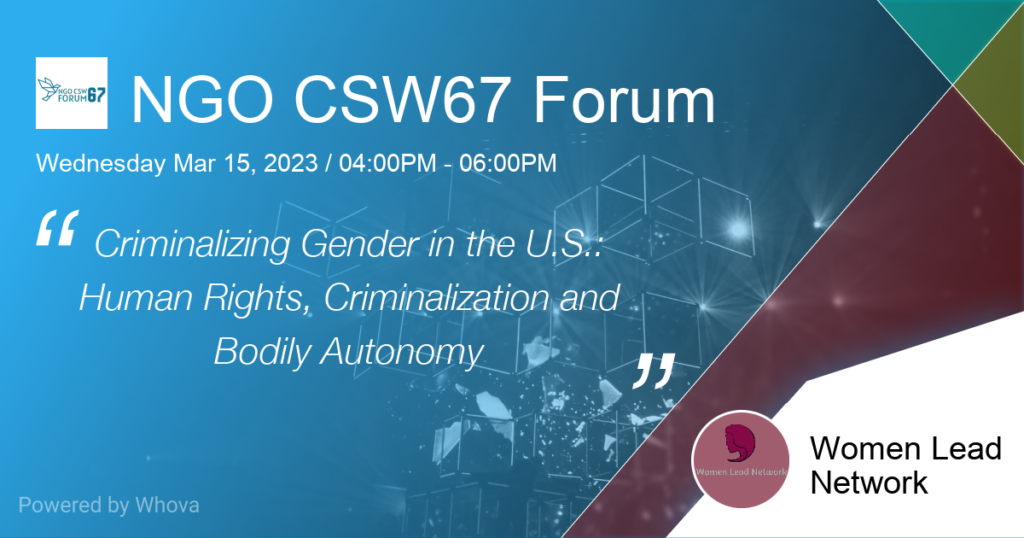Join us for our event during the NGO/CSW67 Forum on Criminalizing Gender: Human Rights, Criminalization and Bodily Autonomy held during the U.N. Commission on the Status Women convening on Wednesday, March 15th at 1pm (PT)/4pm (ET). You can access the event by registering for the NGO/CSW67 Forum. https://ngocsw67forum.events.whova.com/
This is a virtual event
“The United States carceral system is the largest in the world. This parallels the diminishing capacity for women in the United States to access bodily autonomy in a Post Roe society.
However, many women have known all along that agency related to their bodies was precarious. Women whose work has been exploited by corporations and criminalized through systems of justice, have known. Women who have experienced sexual violence in the military have known. Women who cannot access necessary medical care, including gender affirming care, have known. Incarcerated women have known, all along, that the intersection between incarceration and bodily autonomy has left them to endure decades of medical neglect and unconsented to medical interventions. Women who have experienced gender based violence have known, all along, that the criminal justice system was not going to help them, and may even, in fact, harm them if they tried to escape that abuse. Women have known, all along, that while the U.S. promotes “Women’s Rights are Human Rights” as the center of its Human Rights Agenda, the reality of who qualifies for those protections remains contested.
This event will highlight the experiences of women who have been abused by the U.S. Criminal Justice System and the advocacy being done to repair the harm. It will bring to light issues impacting women within the U.S. carceral system, in particular the forced sterilization of women in detention settings and the criminalizing of self-defense for women experiencing gender based violence
Women Lead Network has partnered with the California State University, Northridge, Criminology and Justice Studies Department to bring to light human rights abuses facing incarcerated women as well as some alternatives and remedies that can address past abuse and mitigate future harm.”


